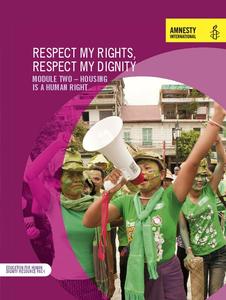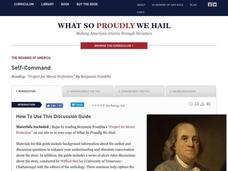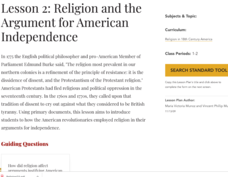New York State Education Department
Global History and Geography Examination: June 2016
Assess scholars' knowledge of the changing borders in Germany during World War II with a test that includes both multiple choice and essay questions.
New York State Education Department
Global History and Geography Examination: August 2016
Challenge class members with an architectural resource that asks them to use a variety of skills to answer multiple choice questions as well as several essay prompts about the streets and house fronts of ancient Athens. One question asks...
University of Pennsylvania
Decoding Propaganda: J’Accuse…! vs. J’Accuse…!
Reading snail mail is a great way to go back into history and to understand others' points of view. The resource, the second in a five-part unit, covers the Dreyfus Affair. Scholars, working in two different groups, read one letter and...
University of Pennsylvania
Using Political Postcards to Teach a Revolution of Political Thought
Discuss how political postcards affected everyday people's thoughts and beliefs. Pupils continue a unit on the Dreyfus Affair as they engage in class discussion, watch a video, view a PowerPoint presentation, and fill out worksheets to...
Newspaper Association of America
Using the Newspaper to Teach the Five Freedoms of the First Amendment
Of all the amendments found in The Bill of Rights, the First Amendment contains some of the most important freedoms for American citizens. A unit plan on the First Amendment features interactive lesson plans designed to teach about those...
American Bar Association
News Literacy Model Curriculum in Social Studies
Scholars investigate news literacy in the twenty-first century. They use technology, legal decisions, writings, and digital privacy to analyze the topic. Using what they learned, a group assignment looks into both the challenges and...
Amnesty International
Respect My Rights, Respect My Dignity: Module Two – Housing is A Human Right
Take learners on a journey throughout the world to discover how other people live. Scholars experience a taste of what life feels like for those in poverty and without housing. Activities include discussions, building a cardboard house,...
Amnesty International
Respect My Rights, Respect My Dignity: Module One – Poverty and Human Rights
Creating an environment where learners feel both educated and empowered challenges any teacher when discussing a sometimes bleak topic. A respectful resource provides them with the details and permits them to make a plan of action....
Council for Economic Education
The Role of Government: The Federal Government and Fiscal Policy
Give learners a crash course in balancing the books on the United States federal government level with an economics and government resource. Class members engage in a warm-up discussion and brainstorming session before answering...
Facing History and Ourselves
Laws and the National Community
When it comes to the law, is justice always served? Teach scholars about how law sometimes enables prejudice of entire groups of people with a unit on World War II that includes a warm-up activity, analysis of primary sources,...
Ohio Center For Law-Related Education
Four Activities: Thurgood Marshall and the Nomination and Confirmation of Federal Judges
The process of nominating and confirming federal judges can sound like a lot of bureaucratic hoops, but a resource breaks down the steps of the Supreme Court nominations in a simpler manner. Learners participate in four activities that...
University of California
Containing Communism Abroad
Learn more about the policy of the United States to contain communism during the Cold War. The fifth installment of an eight-part series looks at primary and secondary materials about a challenging time in history. After analyzing the...
University of California
The End of the Cold War (1979-1991)
Scholars use primary and secondary documents, as well as video evidence, to investigate the end of the Cold War. After completing the final installment of an eight-part series, class members better understand the issues surrounding the...
University of California
Anti-Communism at Home
Have you ever been accused of something without cause? The sixth installment of an eight-part series asks scholars to create a museum exhibit on the anti-communist activities in the United States at the start of the Cold War. To make...
National History Day
Poetry from the Trenches of World War I
Often, the real-life experiences of soldiers gets lost back home when the war seems so far away. Scholars investigate the personal side of World War I in the trenches of Europe to complete a collaborative social studies activity. When...
National Endowment for the Humanities
Lesson 4 James Madison: Internal Improvements Balancing Act—Federal/State and Executive/Legislative
Who has the power? The founding fathers asked the same question when the United States was formed. Learners explore issues that arose during Madison’s presidency that raised constitutional questions. Through discovery, discussion, and...
PBS
Evolution of the Presidency: Theodore Roosevelt to Franklin D. Roosevelt
How much power should a president be allowed to exert? Theodore Roosevelt and Franklin D. Roosevelt exercised their power according to their interpretations of the United States Constitution, and these interpretations affected the...
What So Proudly We Hail
The Meaning of America: Self-Command
Even for one of the most accomplished men in American history, there was room for improvement. Challenge high schoolers to use Benjamin Franklin's Project for Moral Perfection to analyze text, make inferences, connect to historical...
Fluence Learning
Writing About Informational Text: The Dred Scott Decision
Looking for a performance assessment that asks individuals to demonstrate their competency in writing about informational text? Use Frederick Douglass' essay "On the Dred Scott Decision," and an excerpt from Abraham Lincoln's 1857 speech...
Stanford University
Historical Thinking Chart
Narrow down your questions about author perspective, historical context, and veracity of claims in a document with the help of a historical reading chart. Learners track the basics of the document along with advanced evaluation skills...
Roy Rosenzweig Center for History and New Media
End of the Cold War
How significant was the Cold War during the 20th century? After reading and analyzing speeches by Ronald Reagan and Mikhail Gorbachev, learners consider the historical context of foreign policy decisions made during the Cold War by both...
Humanities Texas
Primary Source Worksheet: Letter Regarding the Whiskey Rebellion
Analyze the federal government's direct response to the Whiskey Rebellion through this fantastic primary source analysis activity activity.
What So Proudly We Hail
Life, Liberty, and the Pursuit of Happiness: A Lesson on the Declaration of Independence
What does it mean to say that a right is unalienable? How did the founding fathers convey this revolutionary concept in the Declaration of Independence? Engage in a close reading and analysis of the Declaration of Independence, and...
National Endowment for the Humanities
Lesson 2: Religion and the Argument for American Independence
Young scholars examine how religion affected arguments justifying American independence. They read and analyze primary source documents, and write an essay analyzing how Americans used religious arguments to justify revolution against a...

























